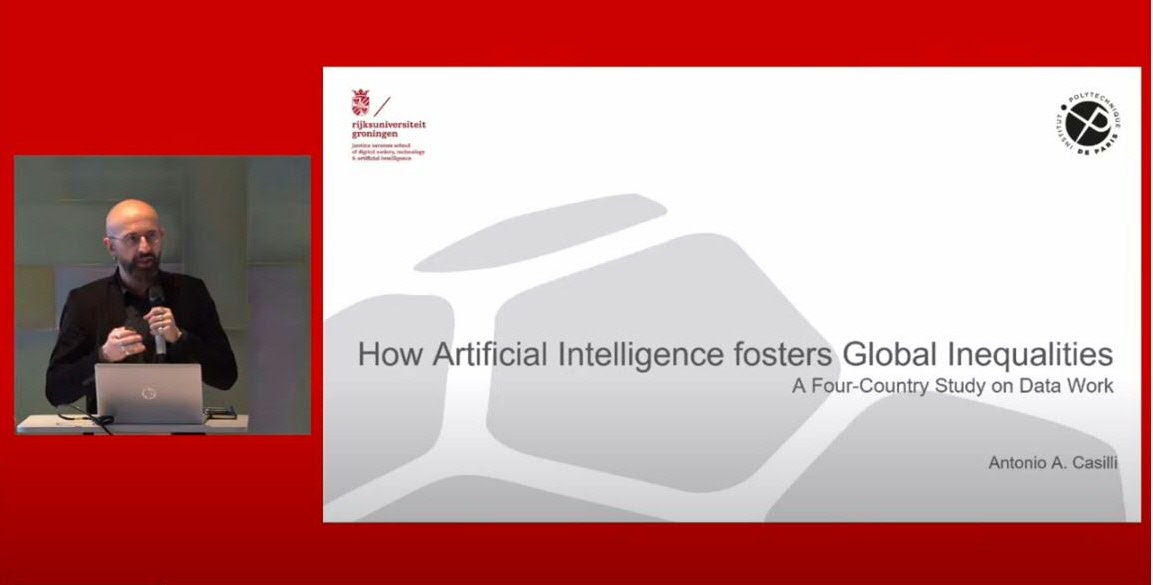Recap: 'A thought provoking lecture about AI and inequality'
Who are the driving human forces behind artificial intelligence? This question was central to last week's lecture 'How Artificial Intelligence fosters Global Inequalities' in the House of Connections from the University of Groningen.
Invited as keynote speaker was Antonio Casilli, professor of sociology at the Institut Polytechnique de Paris. His compelling talk made it clear that AI, like for example ChatGPT, is not possible without millions of human 'click workers' or 'data workers'. While vital for ‘training' artificial intelligence, these invisible labourers often work in deplorable conditions.
The professor and his team examined the labour conditions and social and demographic profiles of data workers in low-, middle- and high-income countries. In his lecture, Casilli elaborated on the case studies in France, Madagascar, Venezuela and Brazil. For each country, he gave interesting insights on the working conditions and profiles of 'click workers'. Using these examples, he also focused on the 'supply chain' of artificial intelligence, which often goes back to historical and existing dependencies between countries.
Casilli's talk was followed by a barrage of questions from fellow researchers including Beryl ter Haar, Seonok Lee, Tatiana Llaguno Nieves, George Azzopardi, Femke Cnossen and Wike Been. It became clear that the peer researchers had listened to Casilli's story with great interest. In their questions, the researchers touched on various topics, such as labour law, the situation in South Korea, the positive aspects of human 'click workers', supply chains, the difference between urban and rural areas, inequality, the self-image of 'click workers' and labour market trends. Afterwards, the professor managed to answer the questions flawlessly, although some of the researchers had to wait for their answers until the drinks, given the limited time.
Watch the lecture here:

The event 'How AI fosters Global Inequalities' took place on 20 November and was organised by Panoptiwork and the Jantina Tammes School of Digital Society, Technology and AI.
| Last modified: | 27 November 2023 5.29 p.m. |
More news
-
24 March 2025
UG 28th in World's Most International Universities 2025 rankings
The University of Groningen has been ranked 28th in the World's Most International Universities 2025 by Times Higher Education. With this, the UG leaves behind institutions such as MIT and Harvard. The 28th place marks an increase of five places: in...
-
05 March 2025
Women in Science
The UG celebrates International Women’s Day with a special photo series: Women in Science.
-
16 December 2024
Jouke de Vries: ‘The University will have to be flexible’
2024 was a festive year for the University of Groningen. In this podcast, Jouke de Vries, the chair of the Executive Board, looks back.

